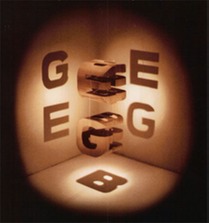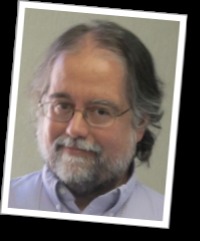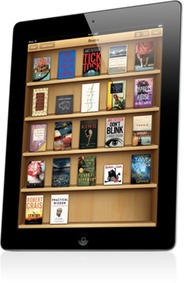My life is more than my work
SCI-FI: I love a good story, and recently re-read Gulliver's Travels on my iPad ... how would Jonathan Swift describe an iPad as an artifact from Laputa? I'm a life-long science fiction reader, from my first Robert Heinlein, to Ursula K. LeGuin, Octavia Butler, Connie Willis (a historian by profession, writing great time travel tales!), and John Varley, among many others. Some of these writers sometimes approach the fantasy realm (I also love the great Lord of the Rings novels and, to my surprise, the movies ... also check out Stephen Donaldson's The Chronicles of Thomas Covenant, the Unbeliever), but the first group are mostly considered "hard science" sci-fi.
An iPad book case (not my books)
Sci-fi has a long history on television: classics like Buck Rogers & Lost in Space & Star Trek, as well as newer, less well-known but quality stories, like Earth 2 and Farscape. The same's true in movies: from the 1927 German Expressionist Metropolis to 2001: A Space Odyssey through the Star Wars series to the Green Lantern (where did his ring come from?). The events of TV's Lost In Space start in the "far future" of 1999! It's a sci-fi pitfall, along with inventing star travel before cell phones. Then again, real life invented the moon landing before putting wheels on luggage, so who's to judge, really?
SCI-FACT: My sci-fi reading has phase-shifted into reading hard science ... I irreligiously read each weekly issue of Science News, and I enjoy the nine-installment-so-far annual book anthology The Best American Science Writing of [year].
My three favorite books ever, in mutable order, are:
(1) Invisible Man [the National Book Award winner by Ralph Ellison, not The Invisible Man, the H.G. Wells sci-fi novel ... a good read and morality tale, though];
(2) To Kill A Mockingbird by Harper Lee [a Pulitzer Prize winner, and like Ellison's Invisible Man, the only book the living author ever published]; and
(3) Gödel, Escher, Bach: An Eternal Golden Braid (GEB) [a Pulitzer Prize winner, and it's a science book, trust me], one of many books by Douglas Hofstadter.
See also Hofstadter's Le Ton Beau de Marot, a 570 page book (not counting notes) on the translation of a short (28 lines, 3 syllables to a line) French Renaissance poem written in 1537. It's also packed with "incidental" brilliant discourses on what it means to translate a work, intelligence (artificial and not), his wife's illness and death, and the meaning of meaning. So, through poetry, he's still writing on the scientific pursuit of the philosophy of mind. You don't need any French to enjoy it.
My science interests suit me as a minor computer nerd with a very little programming experience ... I once wrote a program that did Tarot card readings, and I'm currently teaching myself Ruby (see Computers).

A wooden form throws a different shadow on each of its 3 axes, invented for the book GEB.

